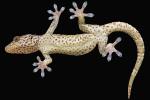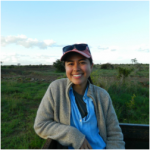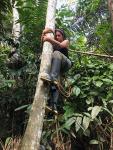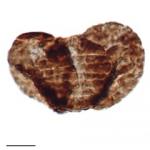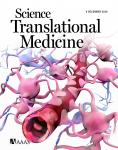To climb like a gecko, robots need toes!
Submitted by rhkayen on Thu, 05/14/2020 - 09:47Biologists from the University of California, Berkeley, and Nanjing University of Aeronautics and Astronautics observed geckos running horizontally along walls to learn how they use their five toes to compensate for different types of surfaces without slowing down.
“The research helped answer a fundamental question: Why have many toes?” said Robert Full, UC Berkeley professor of integrative biology.
